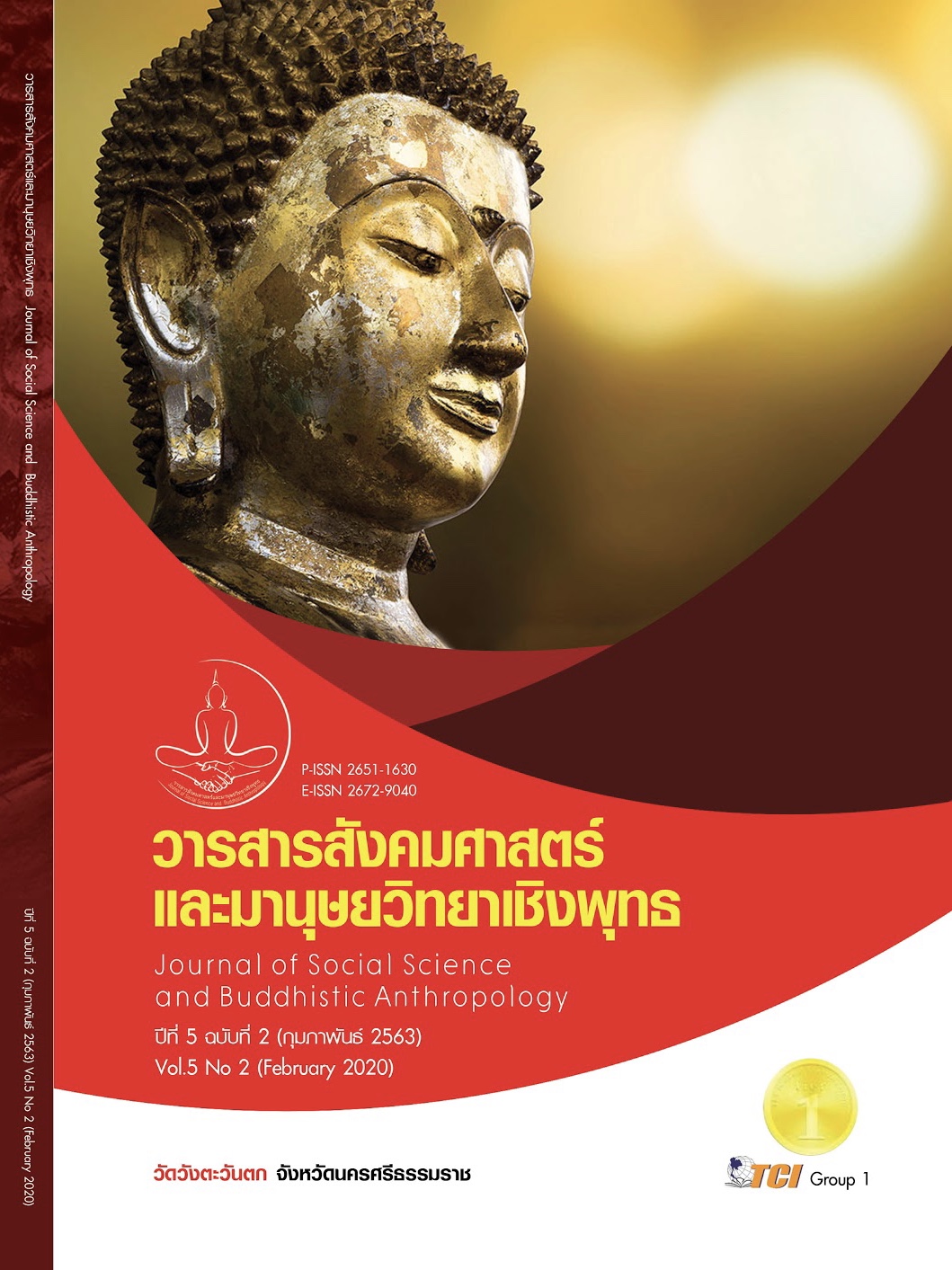LEGAL MEASURES TO REDUCE THE DANGERS OF MEDICAL MARIJUANA USE
Keywords:
Marijuana, Medical, Harm ReductionAbstract
The purpose of this research is Study and analyze legal measures to reduce the dangers of reduce marijuana use. And study, analyze and compare legal measures for the use of medical skills of foreign countries with Thailand. From a criminal law policy that strictly forbids the use of drugs, in particular Drugs “Marijuana” makes Thai people and the medical profession of Thailand Lack of opportunities to access and use the beneficial properties of “Marijuana” in the treatment of diseases In many symptoms. The results of the call from many parties in the country to the benefits of marijuana for medical use until the year 2019, government legislation was De-criminalization or enacted as an exception to Use marijuana in the treatment of various diseases. Medical Which is considered beneficial to patients and the medical industry However, there is still no law enacting regulations regarding the use of marijuana properly and to reduce the danger of marijuana use as executive law on various measures and matters. Studies from countries that have previously allowed medical marijuana in Thailand have found that The state’s legislative policy will enact laws to regulate drug use clearly, correctly in accordance with the principle of pharmacology and medical and public health.
That provides safety to the public correctlyTherefore, there is a suggestion for the government to enact laws to control and regulate the use of marijuana in accordance with the correct pharmaceutical principles. And safe medical and public health management for the people who use marijuana in order to “reduce the danger” from marijuana use, specify the type, type, quantity, characteristics and medical treatment of specialists. In the form of administrative law or public law. That is the next standard.
References
กัลยรักษ์ บวรเศรษฐาสกุล. (2558). การยกเลิกความผิดเกี่ยวกับยาเสพติดศึกษากรณี:การเสพและการครอบครองกัญชา. ใน วิทยานิพนธ์นิติศาสตรมหาบัณฑิต สาขากฎหมายอาญาและกระบวนการยุติธรรมทางอาญา. มหาวิทยาลัยธุรกิจบัณฑิตย์.
จิรวุฒิ ลิปิพันธ์. (2562). การลดความรุนแรงในการบังคับคดียาเสพติด. ใน วิทยานิพนธ์นิติศาสตร์ดุษฏีบัณฑิต สาขากฎหมายอาญาและกระบวนการยุติธรรมทางอาญา. มหาวิทยาลัยธุรกิจบัณฑิตย์.
ธานี วรภัทร์. (2562). ผลกระทบทางเศรษฐกิจของไทยในสถานะผู้เสพสารเสพติดประเภทกัญชา. วารสารมหาจุฬานาครทรรศน์, 6(5), 2637-2650.
มานพ คณะโต และคณะ. (2559). นโยบายและการจัดการปัญหากัญชา: กรณีศึกษาประเทศอังกฤษและสหรัฐอเมริกา. ใน รายงานการวิจัย. แผนงานภาคีวิชาการสารเสพติด (ภวส).
สำนักงานป้องกันและปราบปรามยาเสพติด ภาค 1. (2550). เรียนรู้เรื่อง...ยาเสพติดชีวิตปลอดภัย. กรุงเทพมหานคร: กระทรวงยุติธรรม.
สำนักงานป้องกันและปราบปรามยาเสพติดภาคเหนือ. (2544). กัญชา-กัญชง. ใน รายงานการสำรวจ. สำนักงานป้องกันและปราบปรามยาเสพติด.
อุมากัญญ์ ไกรฤกษ์. (2563). กฎหมายเกี่ยวกับการใช้กัญชาเพื่อประโยชน์ในทางการแพทย์. ใน วิทยานิพนธ์นิติศาสตรมหาบัณฑิต สาขากฎหมายอาญาและกระบวนการยุติธรรมทางอาญา. มหาวิทยาลัยธุรกิจบัณฑิตย์.
Davids, Downs. (2014). Beyond Buds: Marijuana Extracts Hash, Vaping, Dabbing, Edibles and Medicines. California: Quick American A Division of Quick Trading Co.
Jeff, Grissler. (2014). Marlijuana Business: How to Open and Successfully Run a Marijuana Dispensary and Grow Facility. New York: Marlijuana Business Books Publishing, LLC.
Julie, Holland. (2008). The Pot Book: A Complete Guide to Cannabis. California: Quick American A Division of Quick Trading Co.
Steve, Elliott. (2011). MARIJUANA. New York: PETER PAUPER PRESS, INC.









